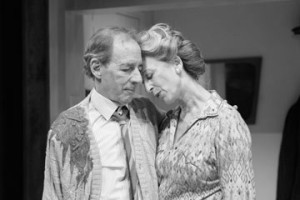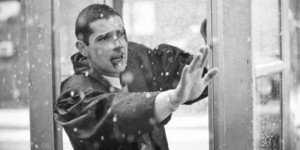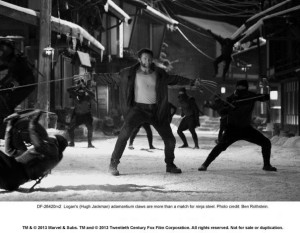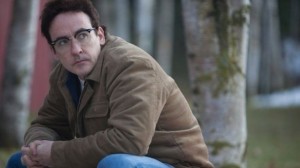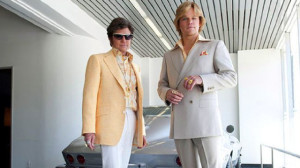Daytona – Theatre
DAYTONA
Park Theatre, Clifton Terrace, Finsbury Park, London N4 3JP
To August 18
Maureen Lipman, CBE, British film, theatre and television actress; Harry Shearer, American actor, Spinal Tap member and voice actor for several characters in The Simpsons; and John Bowe, English television and theatre actor most recently seen on stage in Priscilla, Queen of the Desert – together they star in the World Premiere of Oliver Cotton’s play called Daytona in the gorgeous new Park Theatre in Finsbury Park.
Lipman plays Elli, longtime wife to Joe (Shearer). Set in 1986 Brooklyn, they both lead a simple life. Both retired, former accountant Joe still finds time to manage the taxes of one client, while at the same time pursuing his and Elli’s hobby of ballroom dancing. One day there is a knock on the door – Joe’s brother Billy (Bowe), who Joe has not seen in over 30 years. After escaping a concentration camp back in 1945, Joe and Billy found their way to America where they were about to set up a business together before Billy left at the last moment, only now returning. Billy has revelations about his new life (in Daytona, Florida), and more shocking revelations about an old man, a shadow from their shared past that he met just two days ago, and the violence that transpired. This is just the first act. The three actors put in great performances. However, the fourth big star of the show is the Park Theatre.
A stone’s throw away from Finsbury Park tube and train station, and opened in May 2013, the Park Theatre is like an oasis in an area that is still up and coming (or still up but has a long way to come). A multi-leveled glass-fronted building, with several levels including two theatres, an education suite, one bar on the ground floor and another bar upstairs, the Park Theatre also has a gallery. It still looks brand new – you can practically smell the fresh paint. The theatre in which Daytona is playing, called Park 200, is two levels and holds 200 people. The seats on the first level surround the set, making the audience feel part of the production, or at least eavesdropping on a very good and dramatic conversation. The other theatre in the building is Park 90, a smaller theatre that is currently showing Skin Tight, about an ordinary couple with an extraordinary love reliving their darkest secrets, deepest passions and heartbreaking truths.
Daytona can also be caught at the Theatre Royal, Bath (with the same cast), October 14-19.
